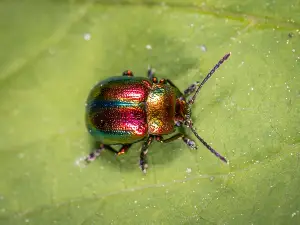
If your backyard is infested with bugs you may have considered calling pest control to deal with the situation but nature has its own way of dealing with pests. Nature’s pest control solutions are insect-eating animals. As a bonus, these insect-eating animals enjoy eating bugs.
But what about birds like pigeons? Do pigeons eat bugs? This article looks into it
Pigeons do eat bugs, bugs are a common feature in the diet of pigeons both in the wild and in urban areas. When eaten, bugs deliver high amounts of protein as well as other nutrients such as calcium, iron, fats and carbohydrates to the pigeon’s body.
Table of Contents
Do pigeons eat bugs?
Just as with many other backyard birds, pigeons eat a variety of foods including nuts, seeds, berries, and bugs. A pigeon’s health is largely dependent on what it eats, a bad diet can result in the bird developing health problems.
Feeding bugs to pigeons can be very beneficial as bugs offer birds good amounts of nutrients.
Humans, as a collective, have only recently started eating bugs, but pigeons and other birds, have enjoyed the benefits of eating bugs for centuries.
Benefits of pigeons eating bugs:
Insects have been shown to be a more superior source of protein than animals. In fact, some insects can contain between 9.96 to 32.2 grams of protein per 100-gram serving while meat can contain 16.6 to 20.6 grams of protein per 100-gram serving.
Not only are bugs beneficial to pigeons in terms of their protein content, but these tiny creatures can also offer the bird a variety of other nutrients. The majority of bugs are rich in iron, fats, calcium and are low in carbohydrates.
Bugs are beneficial to pigeons as these nutrient-rich insects deliver the nutrients that the bird needs without adding too much fat to their bodies which would otherwise negatively affect flight.
Pigeons eating bugs is natural
Pigeons have been designed to be able to eat bugs.
These birds are insectivores, they eat plant matter as well as insects. A pigeon’s beak is designed to be able to eat insects with ease.
If pigeons into contact with a bug the bird will assess whether the bug is edible and if it is, the bird will eat it.
The pigeon doesn’t necessarily see the bug as a bug, it will simply see it as food.
Can pigeons live on insects?
No, insects need to be fed to pigeons along with a variety of other foods. These birds are opportunistic feeders and will eat insects if they are available but insects should not form the bulk of their diet.
Just as with any other animal, pigeons need a variety of food in their diet to keep them well-nourished and to prevent malnutrition.
If you own domestic pigeons, you can supplement your bird’s diet with insects as long as you feed them pigeon feed as well as grains, fruits, and vegetables
Do baby pigeons eat insects?
Baby pigeons eat food offered by their parents, this includes crop milk but not insects.
Crop milk is a think white cottage cheese-like substance produced by both the mother and the father pigeon in their crop. Once produced, the parents will regurgitate this crop milk into the mouths of their babies as food.
The reason pigeon parents do this is because a baby bird’s body cannot digest whole foods like insects. Crop milk contains all the nutrients needed to help the baby develop.
Once the baby bird is able to feed itself, at around 20-25 days old, it will be able to eat insects.
Conclusion
In conclusion, yes pigeons can eat bugs. Bugs and insects play a role in both wild and domestic pigeon diets. Bugs offer pigeons good amounts of protein as well as other vitamins and minerals such as iron, calcium and carbohydrates.
That being said, insects need to be served to pigeons as part of a well-rounded diet that includes a variety of other foods.
If you enjoyed this article then you may also be interested in other pigeon related articles. Here are some articles that you may be interested in: Can pigeons eat oats?, Do pigeons eat clay?, Do pigeons eat chicken?, Do pigeons eat meat?

